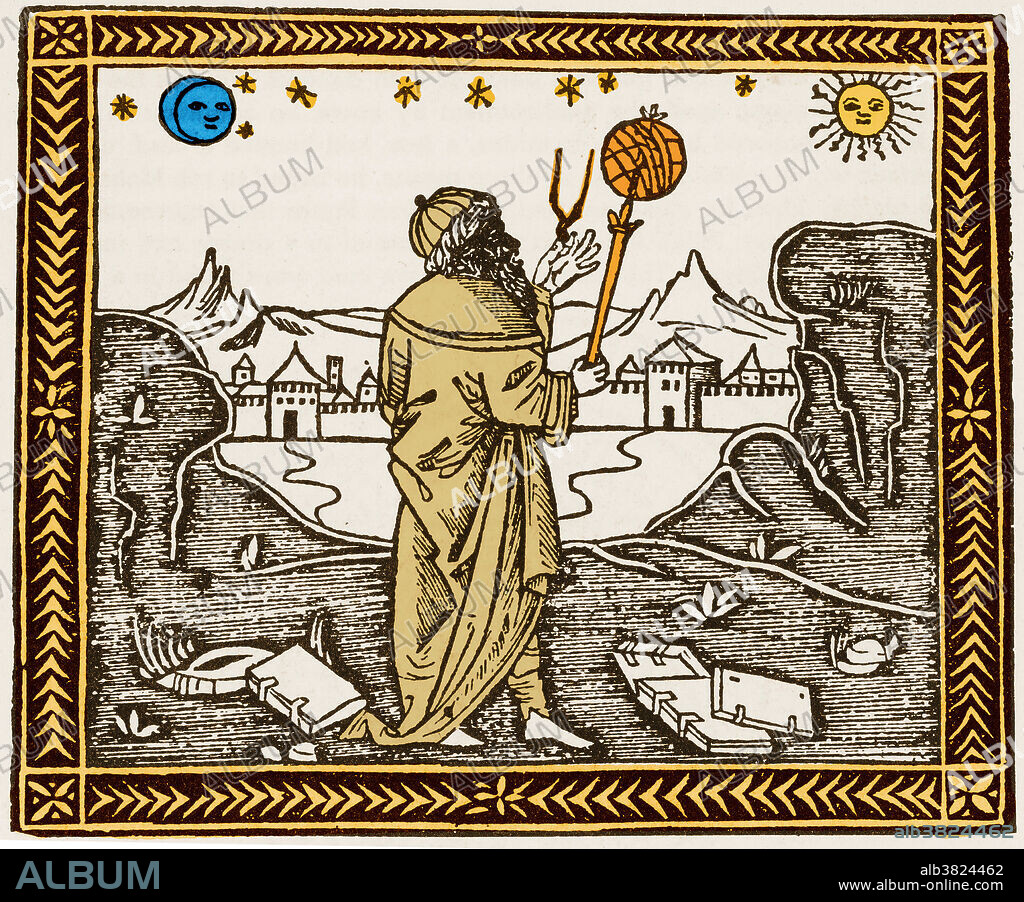alb3824462
Albumasar, Persian Astrologer Astronomer

|
Añadir a otro lightbox |
|
Añadir a otro lightbox |



¿Ya tienes cuenta? Iniciar sesión
¿No tienes cuenta? Regístrate
Compra esta imagen.
Selecciona el uso:

Título:
Albumasar, Persian Astrologer Astronomer
Descripción:
Ver traducción automática
From Albumasar's Introductorium in Astronomism. Venice, 1513. European learning changed when the Arabs entered Spain. Endowed with an insatiable curiosity concerning foreign learning, guided by an Oriental imagination, and filled with energy of people who had extended their boundaries from the Indus to the Pyrenees, the Arabs in their writings show a dynamism which sharply contrasts with the passive wisdom of their western counterparts. Albumasar himself was a ninth century Arabic astronomer whose analysis of the heavens resulted in the creation theory based on the alignment of the seven known planets. Abu Ma'shar, Ja'far ibn Muhammad al-Balkhi (August 10, 787 -March 9, 886) was a Persian astrologer, astronomer, and Islamic philosopher, thought to be the greatest astrologer of the Abbasid court in Baghdad. He was not a major innovator and as an astrologer he was not intellectually rigorous. Nevertheless, he wrote a number of practical manuals on
Crédito:
Album / Science Source / New York Public Library
Autorizaciones:
Modelo: No - Propiedad: No
¿Preguntas relacionadas con los derechos?
¿Preguntas relacionadas con los derechos?
Tamaño imagen:
3581 x 2970 px | 30.4 MB
Tamaño impresión:
30.3 x 25.1 cm | 11.9 x 9.9 in (300 dpi)
Palabras clave:
1513 • ABU • ARABE • ARTE • ASTROLOGIA • ASTROLOGO • ASTRONOMIA • ASTRONÓMICO • ASTRONOMO • CIENCIA • COLOREADA • DIBUJO • FAMOSA • FAMOSO • FIGURA • FILOSOFO • GENTE • GRABADO EN MADERA • HISTORIA • HISTORICO • HOMBRE • HOMBRES • ILUSTRACION • IMPORTANTE • ISLÁMICO • MASCULINO • MEDIA • MEJORA • MESON • MIDDLE • MUSULMAN • OBRA DE ARTE • ORBE • PERSA • PERSONA • PERSONALIDAD • PERSONALIDADES • PLANCHA DE MADERA • PLANETA • RETRATO DE HOMBRE • S. IX • S. VIII • S. XVI • SIGLO IX • SIGLO VIII S. VIII OCHO 8 • SIGLO VIII • SIGLO XVI • SIGLO • XILOGRAFIA
 Pinterest
Pinterest Twitter
Twitter Facebook
Facebook Copiar enlace
Copiar enlace Email
Email
